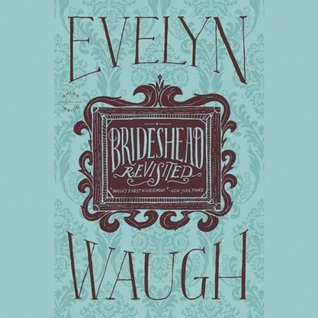- The Good: The bohemian innocence and implied homosexuality whiles partying in Oxford and traveling the world
- The Bad: You might feel some Catholic guilt when this is all said and done
- The Literary: A beloved British classic about what religion gives and war takes
During the final years of the World War II, Charles Ryder and his battalion come upon an uninhabited English manor, one that is all too familiar to Charles. Prompted by a member in his unit, he recounts his time at the Brideshead estate before the war. First encountering Sebastian Marchmain at Oxford, he eventually becomes entangled with the entire wealthy Catholic family.
I love so many things about the beginning of Charles’ story. As an undergraduate at Oxford, he is enamored by the charming and carefree Sebastian, who adopts eccentric friends, drinks regularly, and carries a teddy bear with him around campus. Charles obsesses over Sebastian, who plays hard-to-get, but they eventually develop a deep friendship with implied homoerotic tendencies.
Charles and Sebastian spend a summer alone at Brideshead, but Charles eventually meets the entire family, surprised that most of their dinner conversations revolve around their deeply-held Roman Catholic beliefs. Lord Marchmain left their mother and the faith and lives abroad. Their mother is the center of the household; she’s dramatic and everyone fauns over her. The elder son, himself named Brideshead, and the youngest daughter Cordelia enthusiastically support their mother and all her decisions regarding the household.
Before Charles spends the holiday at Brideshead, he returns home to London, where his emotionally distant widowed father reads the paper and often pretends Charles isn’t there. His father is attempts to train Charles to be more responsible with money and stand on his own two feet by commenting his actions with a dry wit whilst making him as uncomfortable at home as possible. It’s one of the most delightful and comedic scenes of the entire novel.
Whereas the first act is full of the possibilities of youth and love and summer, the rest of the story is downright serious. Sebastian begins to rely more and more on alcohol, and his relationship with his family and Charles becomes more strained. I will let you discover the rest for yourself, but let’s just say that Catholicism plays a much larger role.
As much as I enjoy the beginning of the novel, there are two themes I find entirely unbecoming. Either I’m missing something or the novel is severely espousing the Catholic faith. The Marchmain family are defined by their religion, some desperately cling to it, some stray, but they all return in the end, with some additional unexpected conversions. There is also a longing for old wealth and English aristocracy, but unlike many British novels that ignore the egalitarian class, the voices of several prominent characters make some non-ironic elitist statements.
In the end, Brideshead Revisted is a story about the loss of innocence, tragedies you can’t escape, and Catholic guilt. I’m still wondering if the religion is the reason all the characters are doomed, or if after all it’s the religion that saves them from their excess, pride, and adultery.
